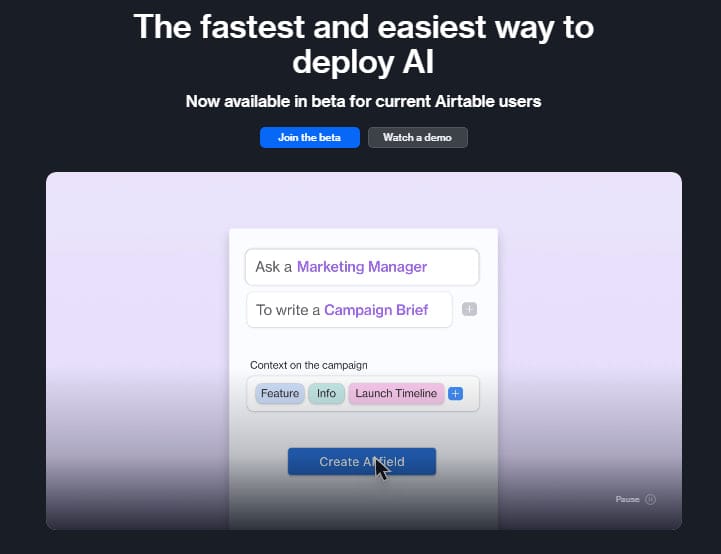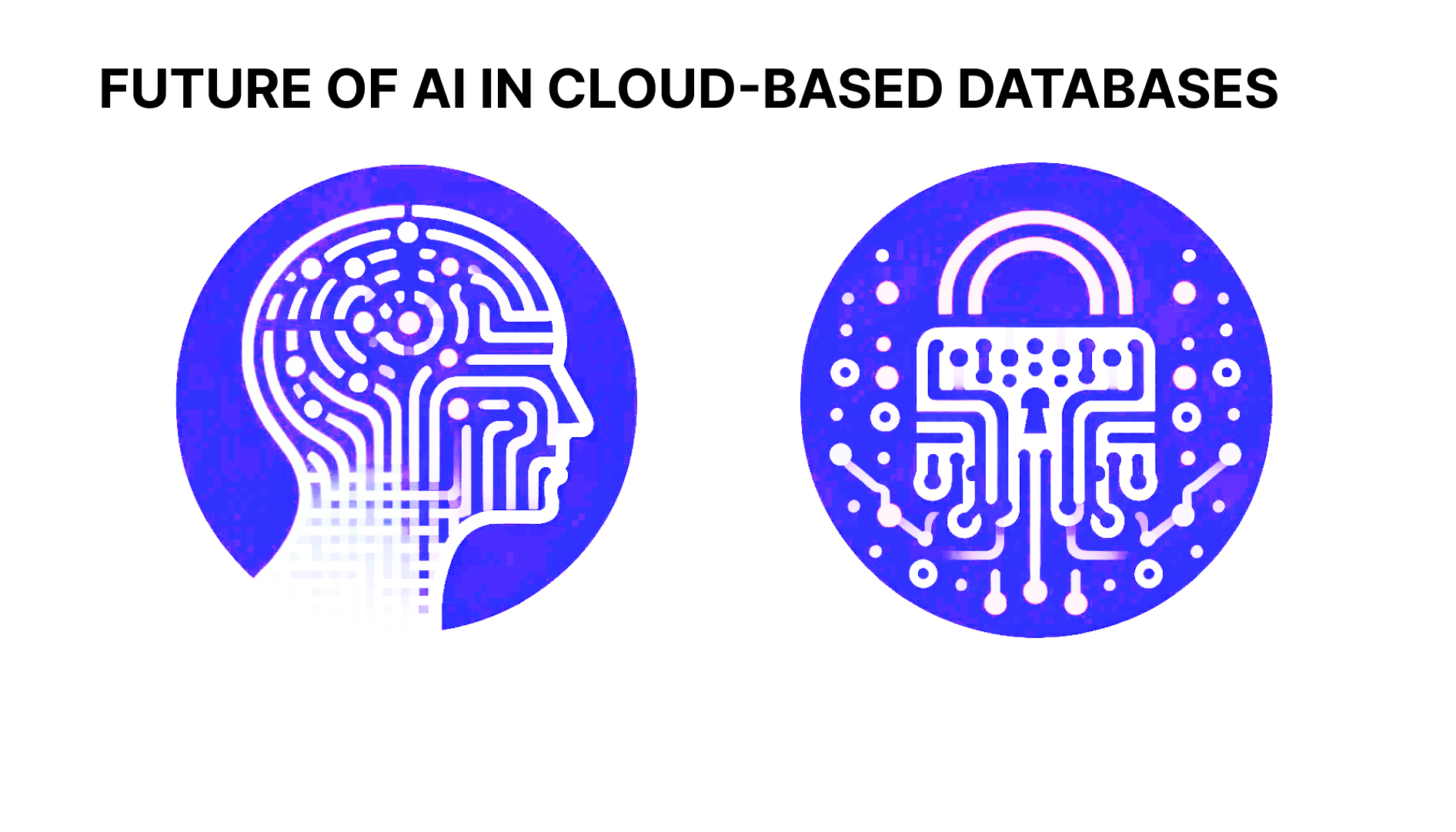Introduction
In the current era of technological advancements, the use of cloud-based databases has become increasingly popular as it offers numerous benefits over traditional on-premise databases. These cloud-based databases are paving the way for a new era of data management and analysis. One of the most significant advancements in this field is the integration of Artificial Intelligence (AI) technology into these platforms. Among these platforms, Airtable is a notable example that has revolutionized the way data is managed and analyzed. The integration of AI in Airtable has allowed for the automation of various tasks, such as data entry, sorting, and analysis, making the process more streamlined and efficient. This development has given businesses and organizations a competitive edge by providing them with more accurate and timely insights into their data, leading to better-informed decisions.
If you want to find a NoCode job, you can do it on our platform. Click the button below for more information.
Background of Airtable

Airtable is a remarkable platform that has managed to bridge the gap between database functionality and user-friendly design. It is more than just a simple data repository; it offers a flexible and robust platform that makes data management accessible to a broader range of users. The platform's evolution reflects a broader trend in cloud-based solutions, where user experience is as crucial as technical capability.
Airtable's interface is easy to navigate, and users can create custom databases with ease. The platform offers a wide range of templates tailored to various industries, including project management, event planning, content creation, and more. The platform is highly customizable, allowing users to create custom views, workflows, and automation tailored to their needs.
Airtable's strength lies in its flexibility and scalability. It can handle a wide range of data types, including text, attachments, checkboxes, and more. Additionally, it allows users to link records across multiple tables, enabling them to establish complex relationships between data sets. The platform's API and integration capabilities allow users to connect it with other tools and services, making it a highly versatile solution.
In summary, Airtable's innovative approach to data management has made it a popular choice for businesses of all sizes. Its user-friendly interface, flexibility, and scalability make it an accessible solution for anyone who wants to manage their data effectively.
AI Integration in Airtable

With the introduction of AI into Airtable, businesses, and individuals now have access to a powerful tool that takes data management to the next level. The integration of AI in Airtable is not just about streamlining tasks and automating processes, but it is about leveraging data to generate valuable insights. This technology is capable of analyzing vast amounts of data, extracting patterns, and predicting trends, thereby making it an indispensable tool for decision-making.
Moreover, AI in Airtable makes it possible to personalize user experiences, thereby enhancing engagement and improving the overall user interface. With AI, businesses can analyze user behavior, preferences, and needs, and then tailor their services to meet those requirements. This personalized approach improves customer satisfaction, increases conversion rates, and boosts brand loyalty.
In summary, the introduction of AI in Airtable is a significant milestone in the world of data management. This integration not only enhances productivity and automates tasks but also generates valuable insights, predicts trends, and personalizes user experiences, making it an invaluable asset for businesses and individuals.
If you want to learn NoCode but do not know where to start, you can do it on our courses. Click the button below for more information.
Capabilities of Airtable AI
Airtable AI is a powerful tool that stands out for its ability to automate complex tasks, analyze large datasets, and provide predictive insights. It is designed to streamline workflows by predicting user needs and automating repetitive tasks, which allows for a more efficient allocation of resources and time. Its analytical capabilities are impressive, as it can turn raw data into actionable intelligence, providing valuable insights for strategic planning. Airtable AI's predictive algorithms can help businesses make informed decisions, detect patterns and trends, and identify areas for improvement. Whether you are managing a large project or analyzing data from multiple sources, Airtable AI can help you achieve your goals more efficiently and effectively.
Use Cases

Airtable AI is a versatile tool that is highly useful in various sectors. One of its most impressive applications is in marketing, where it can predict consumer trends and help optimize campaigns. In project management, it can be used to aid in resource allocation and keep track of deadlines, making it an essential tool for businesses of all sizes. What's more, Airtable AI's adaptability means that it can be utilized in a wide range of industries, including healthcare, education, and finance, to help streamline processes and improve overall efficiency. Thanks to its many capabilities and user-friendly interface, Airtable AI is a valuable tool that can help businesses stay competitive in today's fast-paced marketplace.
Challenges and Limitations

As businesses continue to adopt cloud-based databases like Airtable, the integration of AI has become increasingly popular due to its numerous advantages. However, this integration is not without its challenges. One of the most pressing concerns is ensuring the privacy and security of sensitive data. With the ever-increasing number of cyber threats, businesses must ensure that their data is well-protected.
Another challenge is the complexity of AI systems. While automation can lead to increased efficiency, there is a learning curve involved in understanding how these systems work. This can be a significant challenge for many users, particularly those who are not familiar with the technology. Furthermore, there is an ongoing need to balance automation with human oversight. While AI systems can be incredibly helpful, they are not infallible, and there is always a need for human input and critical thinking.
In summary, while there are many advantages to integrating AI into cloud-based databases like Airtable, there are also several challenges that must be addressed. Ensuring data privacy and security, understanding the complexity of these systems, and balancing automation with human oversight are all critical factors to consider when implementing AI into a business's database infrastructure.
Future of AI in Cloud-Based Databases

The rapid advancements in AI technology have had a significant impact on cloud-based databases. The future of AI in this field is particularly bright and full of potential. With more advanced machine learning models, we can expect to achieve deeper insights into the data stored in cloud-based databases. Moreover, we can expect the user experience to become more intuitive, with personalized data experiences that cater to individual needs and preferences. The focus will likely shift towards predictive analytics, allowing businesses to make accurate predictions about future trends and make informed decisions based on those insights. Additionally, enhanced security features will be a top priority to safeguard sensitive information, as more data is being stored in the cloud, making it a prime target for cybercriminals. In summary, the future of AI in cloud-based databases is poised to revolutionize the way businesses store, access, and analyze data, leading to increased efficiency, productivity, and profitability.
If you already have an idea for your project but do not have good employees to develop it, you can find them on our platform. Click the button below for more information.
Conclusion
The integration of artificial intelligence (AI) into cloud-based databases, such as Airtable, has significantly transformed how data is managed. With AI, data systems are becoming more intelligent, efficient, and user-friendly, thereby enabling businesses and individuals to make better use of their data. AI-powered databases can automate mundane tasks, such as data entry and data cleaning, freeing up valuable time for more important tasks. Additionally, AI can help identify patterns and insights within data that may not be apparent to humans, thus improving decision-making. As we look to the future, the potential of AI to revolutionize our interaction with data is both exciting and limitless. AI is poised to bring about a new era of data management, where businesses and individuals can harness the power of data in ways that were once unimaginable.





